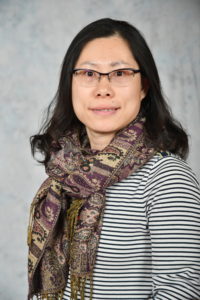I’m pleasantly surprised by how well-organized eCampus Ontario extend mOOC is, and hoping to make some meaningful and long-lasting connections with the community here.
As I’m going through the materials of module 2: Technologists, I started thinking of why digital literacy matters, and how much does it matter to “good teaching”.
Being digital literate starts with knowing the problems we want to solve. Is it about improving student’s engagement? Is it about deepening understanding of key concepts? Is it about communicating more effectively? Or is it about having a fun and open learning environment? While I was teaching in Singapore, every faculty member from my department took part in the popular Coursera online course: Powerful Tools for Teaching and Learning: Web 2.0 Tools.
That was the first time I took some time thinking about what exactly are digital literacies and why they are important. Our students today are different from students decades ago; in fact they are probably more digital literate than us in many aspects. In order for us to improve our teaching and reaching our students, being aware of what tools are available becomes very important. On the other hand most edtech tools have their own limitations. Before we use any new tool, it’s a good practice to try to understand what they are meant to help with, and what potential issues we may run into.
I believe most of the problems we are trying to solve have low-tech or no-tech solutions. Using digital tools is just one way of solving it. Perhaps before we dig in the endless list of “cool” tools that are out there, we should ask ourselves can we come up with a no-tech solution to address the issue at hand, focusing on the students, and what’s best for them.
I find the most useful way to adopt new tools effectively is by discussing it with colleagues and the bigger teaching community (we have a wonderful teacher community here: teacherforlearning channel! ). It comes to each one of us to share our experiences and spread it out, especially what don’t work. Don’t hesitate to share something that you tried and didn’t work. It might save someone else plenty of time and frustration in future. I stopped using Mentimeter a while ago because I didn’t like the paid version, and it’s hard to edit mathematics there.
For those who are taking the same course with me, you can find my extended activities of Module 1 here:
https://docs.google.com/document/d/1zqokoWhrpin3XtxNA6S3L0BvPbQccsAEQMo6zgJ0zIQ/edit?usp=sharing
